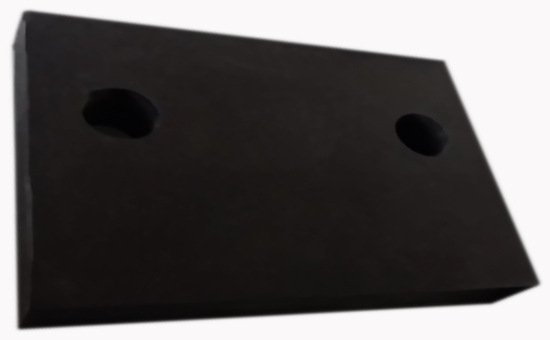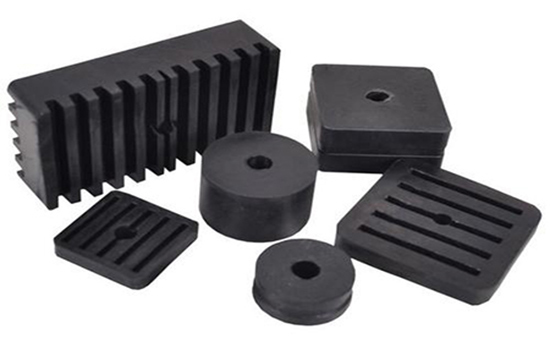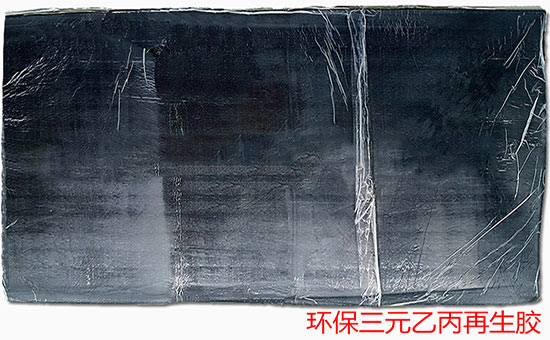EPDM recycled rubber has good high and low temperature resistance and ozone resistance. It can directly replace EPDM rubber or be used with EPDM raw rubber to produce shock absorbing rubber products such as automobile engine bearings, bridge bearings, etc. It can effectively reduce costs on the premise of ensuring the heat resistance, weather resistance and aging resistance of finished products, and has good damping and dynamic performance when used. When using EPDM recycled rubber to reduce the production cost of damping rubber products, the variety and amount of curing agent affect the comprehensive performance of the damping material of recycled rubber.
In terms of adhesion and tear resistance, sulfur curing system is often used in the production of damping rubber products from ethylene propylene diene monomer recycled rubber, especially damping products with large size and specification, which are not easy to return to the original during vulcanization; Properly adjust the type and amount of curing system compounding agent to obtain long scorch time and fast curing rate, so as to obtain better curing process performance.

In actual production, increasing the amount of curing agent in the EPDM recycled rubber damping product formula can increase the crosslinking density, increase the stiffness of the rubber compound, reduce the damping coefficient and dynamic magnification, reduce the heat generation, and slow down the creep and stress relaxation. However, excessive crosslinking will reduce the strength of the rubber compound and shorten the fatigue life, so the amount of curing agent should be strictly controlled.
When ethylene propylene diene monomer (EPDM) recycled rubber is used to produce shock absorption rubber products, the type of curing system will also affect the shock absorption performance of the curing agent.

In general, the effective curing system will form more single sulfur and double sulfur bonds, improve the stability of the cross-linking chain, improve the heat resistance, reduce creep, and poor dynamic fatigue; The common curing system 2ELYY1019 formed more polysulfide bonds. Although the dynamic fatigue property was good, the heat resistance of the compound was poor; With peroxide curing system, ethylene propylene diene monomer (EPDM) recycled rubber compound has good heat resistance and compression set performance, but its application is limited due to its low elongation at break, relatively low tear strength and adhesion strength to metal, and low production efficiency during vulcanization.
Therefore, when using ethylene propylene diene monomer (EPDM) recycled rubber to produce shock absorption rubber products, it is necessary to reasonably select the curing agent, and when necessary, multiple curing agents can be used together. For example, the peroxide/sulfur yellow/accelerator mixed curing system can better balance the physical and mechanical properties, fatigue properties, dynamic properties, heat resistance and low dynamic magnification of the EPDM recycled rubber damping compound, and is widely used in EPDM heat resistant engine support.

When using ethylene propylene diene monomer (EPDM) recycled rubber to reduce the production cost of shock absorption rubber products, the manufacturer of rubber products must select the appropriate curing agent according to the actual needs, and comprehensively consider the effects of the type and amount of curing agent on the mechanical strength, fatigue performance, dynamic performance, damping performance, etc. of the curing agent. Later, Xiaobian will continue to share relevant issues with you.
Exclusive original article [commercial authorization] reprint, excerpt and excerpt in any form are prohibited without written authorization. Focus on Hongyun rubber: learn the process formula and raw material technology of producing rubber products from recycled rubber to help you reduce costs and increase profits